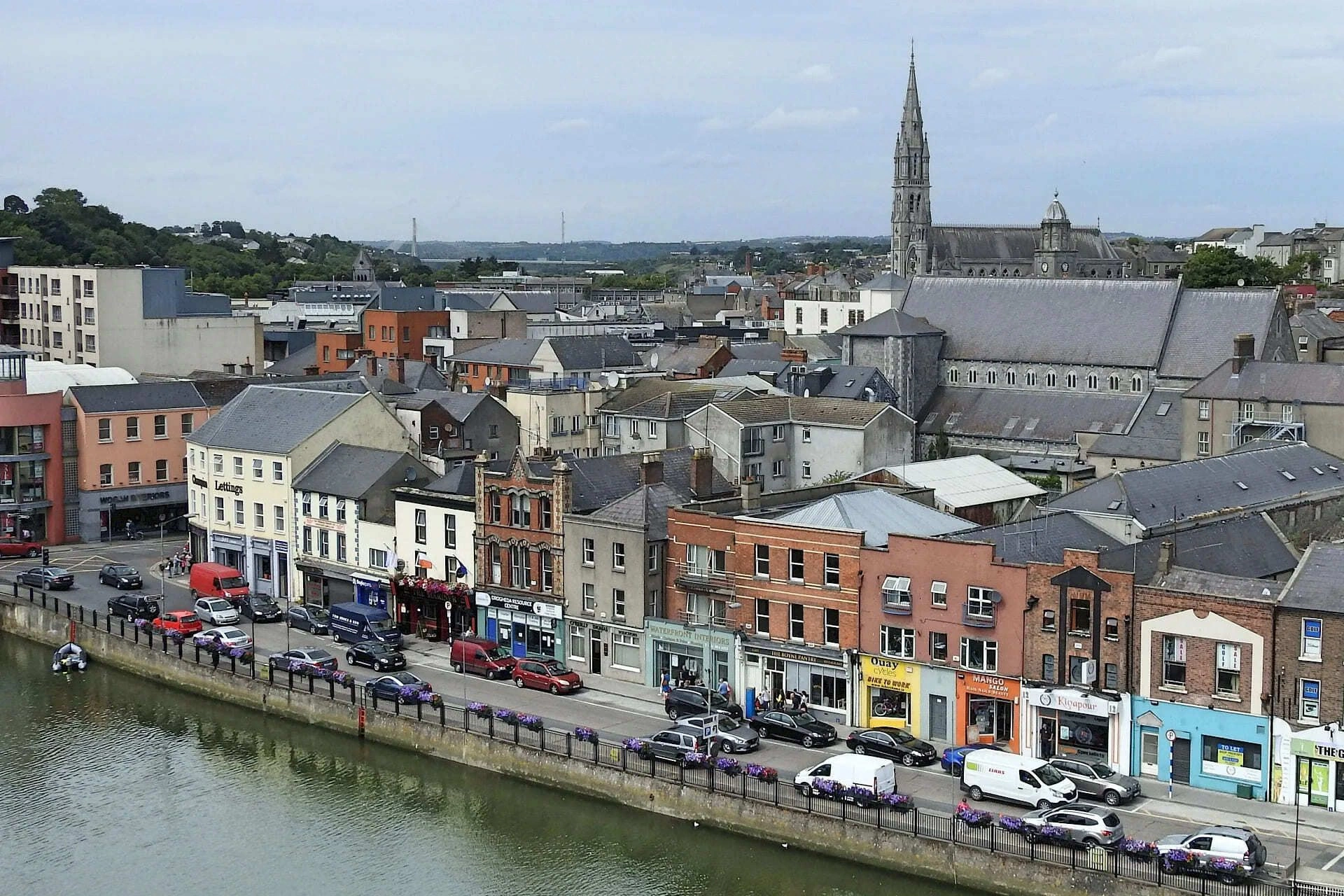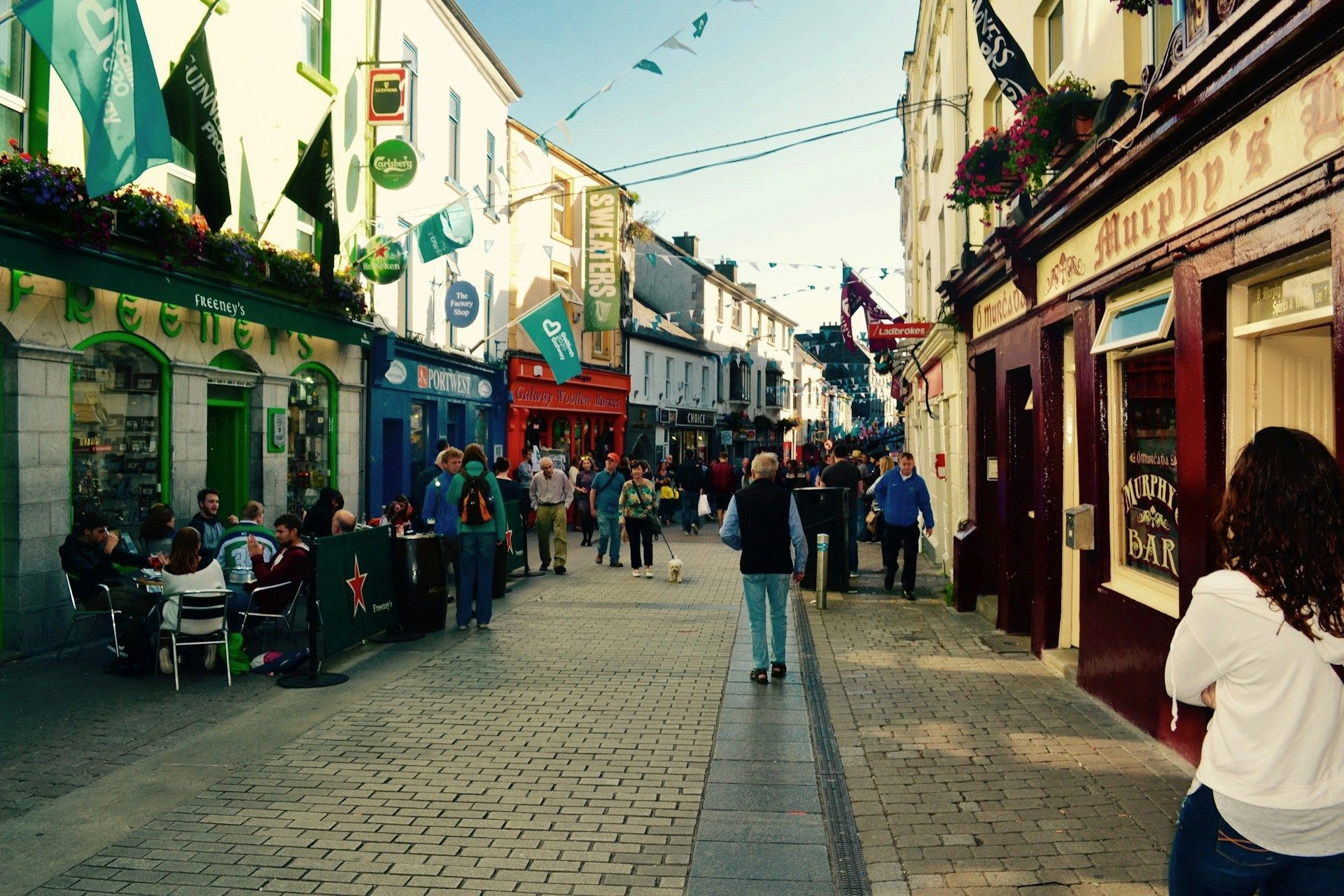Ireland Investment Real Estate – Opportunities for BuyersMix of tradition, innovationand market clarity

Best offers
in Ireland
Benefits of investment in
Ireland real estate
Booming rental market in Dublin and beyond
Ireland’s tech sector and global headquarters drive high demand for city housing.
Solid capital preservation in a stable EU economy
Real estate serves as a hedge against inflation and market turbulence.
Well-regulated, transparent ownership system
Ireland’s land registry and title system make ownership secure and legally clear.
Booming rental market in Dublin and beyond
Ireland’s tech sector and global headquarters drive high demand for city housing.
Solid capital preservation in a stable EU economy
Real estate serves as a hedge against inflation and market turbulence.
Well-regulated, transparent ownership system
Ireland’s land registry and title system make ownership secure and legally clear.

Useful articles
and recommendations from experts
Real Estate in Ireland: Stable Investment in a Dynamic European Economy
Why Invest in Real Estate in Ireland
Ireland has emerged as one of the most attractive real estate markets in Europe, combining a robust legal system, pro-business environment, and high demand for housing and commercial spaces. As a full member of the EU and Eurozone, Ireland offers political stability, a skilled workforce, and strong rental markets — especially in Dublin, Cork, and Galway. Foreign investors are welcomed without restrictions, and the growing population, fueled by immigration and a thriving tech sector, continues to drive demand. Whether you're seeking rental income, capital appreciation, or a foothold in the EU, Ireland offers long-term security and transparency.
Types of Real Estate and Usage Options
Ireland’s property market supports a wide range of investment options across both residential and commercial sectors:
- Residential Properties: Apartments, terraced houses, semi-detached homes, and detached villas are available throughout the country. Dublin and Cork remain high-demand locations.
- Commercial Properties: Offices, retail spaces, and warehouses — particularly in Dublin’s Docklands and the M50 corridor — offer stable income from institutional tenants.
- Student Accommodation: Purpose-built student housing is a growing sector around universities in cities like Dublin, Limerick, and Galway.
- Rural and Coastal Homes: Cottages and farmhouses appeal to lifestyle buyers and remote workers, especially in scenic counties like Kerry and Clare.
- Land Plots: Development land for residential, agricultural, or commercial use is available but subject to zoning restrictions.
Legal Framework and Foreign Ownership
Ireland has one of the most open property markets in the EU. There are no restrictions on foreign individuals or companies purchasing real estate:
- Freehold Ownership: Most residential property is sold freehold, granting full ownership rights.
- Leasehold Property: Common for apartments or developments with shared areas. Long leases (typically 99–999 years) are standard.
- Title Registration: All transactions are registered with the Property Registration Authority (PRA), ensuring legal clarity and ownership protection.
- Solicitor Involvement: Buyers must engage a solicitor for title verification, contract negotiation, and registration.
- Financing: Non-residents may be able to secure local mortgages with up to 60–70% LTV, though many buyers purchase with cash.
Property Prices and Market Trends
Ireland’s housing market has seen steady price growth, driven by supply shortages, economic expansion, and returning diaspora. As of 2024, average prices include:
| Location | Apartment Price (per m²) | House Price Range |
|---|---|---|
| Dublin | €5,500 – €7,500 | €400,000 – €2,500,000+ |
| Cork | €3,200 – €4,800 | €300,000 – €1,200,000 |
| Galway | €3,000 – €4,500 | €280,000 – €1,000,000 |
| Limerick | €2,600 – €4,000 | €250,000 – €800,000 |
| West Coast (rural) | €1,500 – €2,500 | €150,000 – €500,000 |
The Central Bank of Ireland expects housing demand to remain high over the next decade due to population growth and immigration, particularly from tech and finance sectors.
Rental Yields and Investment Returns
Rental income is a major driver for investors in Ireland’s real estate market:
- Dublin: Rental yields average 4%–6% depending on property type and location. Short-term rentals are regulated but still active.
- Cork and Galway: Yields of 5%–7% are common, especially for student or multi-family housing.
- Commercial Yields: Prime offices in Dublin can yield 3.5%–5%, with long-term leases to blue-chip tenants.
- Student Housing: Purpose-built student accommodation offers 6%–8% yields, with consistent demand around major universities.
While capital appreciation has slowed slightly due to interest rate changes, long-term fundamentals remain strong.
Taxes and Fees
Property transactions in Ireland are subject to several taxes and costs:
- Stamp Duty: 1% on properties under €1 million; 2% on the excess above €1 million. Commercial property taxed at 7.5%.
- Capital Gains Tax: 33% on gains from property sales, with allowances for costs and improvements.
- Rental Income Tax: Taxed at standard income rates (20%–40%) after deductions. Non-residents must appoint a local tax agent or pay through withholding.
- Local Property Tax (LPT): Annual tax based on property value (typically €90–€2,000/year).
- Legal Fees: Typically 1%–1.5% of the property price, including solicitor and registration fees.
Best Cities and Regions for Real Estate Investment
Each region in Ireland offers distinct opportunities for investors:
- Dublin: The capital city, home to Google, Facebook, and other tech giants. Strongest rental demand, especially in Docklands, Ballsbridge, and Ranelagh.
- Cork: A growing second city with pharma and tech hubs. Blackrock, Douglas, and city centre offer high-yield rentals and student housing.
- Galway: Cultural capital with university-driven demand. Seaside homes and student apartments are in demand.
- Limerick: Undergoing revitalization with major infrastructure investments. Affordable prices and good yields.
- West Coast (Clare, Kerry): Lifestyle properties and holiday homes in scenic locations. Attractive for long-stay tourism and remote workers.
Investment Scenarios
Investors can pursue several strategies in Ireland’s property market:
- Buy-to-Let Apartments: Target high-demand zones in Dublin and Cork for long-term rental income.
- Student Accommodation: Buy near universities in Limerick or Galway. Strong annual demand and low vacancy.
- Luxury Seaside Homes: For personal use or holiday rental. West Cork, Dingle, and Galway Bay offer rare properties.
- Commercial Investment: Purchase offices or retail space in Dublin or Cork with established tenants.
- Greenfield Development: Acquire land for new housing in suburban zones with local council support.
Infrastructure and Accessibility
Ireland offers modern infrastructure and global connectivity:
- Airports: Dublin, Cork, Shannon, and Knock airports connect Ireland to Europe, the US, and the Middle East.
- Rail and Roads: Intercity trains and motorways provide fast access between major cities and regional towns.
- Internet and Utilities: Widespread broadband coverage, especially in cities. Rural areas have seen improvement under the National Broadband Plan.
- Education: World-class universities in Dublin, Cork, Galway, and Limerick. Good options for international families.
- Healthcare: Public and private systems co-exist; private health insurance is common among expats and investors.
Risks and Considerations
While Ireland’s market is highly transparent and safe, investors should be aware of:
- High Demand and Limited Supply: New construction is slow; bidding wars are common in urban areas.
- Regulation of Short-Term Rentals: Airbnb-style rentals are regulated in Dublin. Licenses may be required.
- Financing Challenges: Mortgages for non-residents are available but may involve higher interest rates or conditions.
- Tax Complexity: Capital gains and rental taxation require local accounting support.
Conclusion: Why Ireland is a Real Estate Stronghold
Ireland combines the advantages of a developed, English-speaking economy with access to the EU market. Its pro-investor legal system, property ownership rights for foreigners, and growing urban demand make it an excellent choice for real estate investment. Whether your goal is yield, capital preservation, or lifestyle relocation, Ireland offers a stable, regulated, and diversified property market — backed by decades of economic growth and global connectivity.





